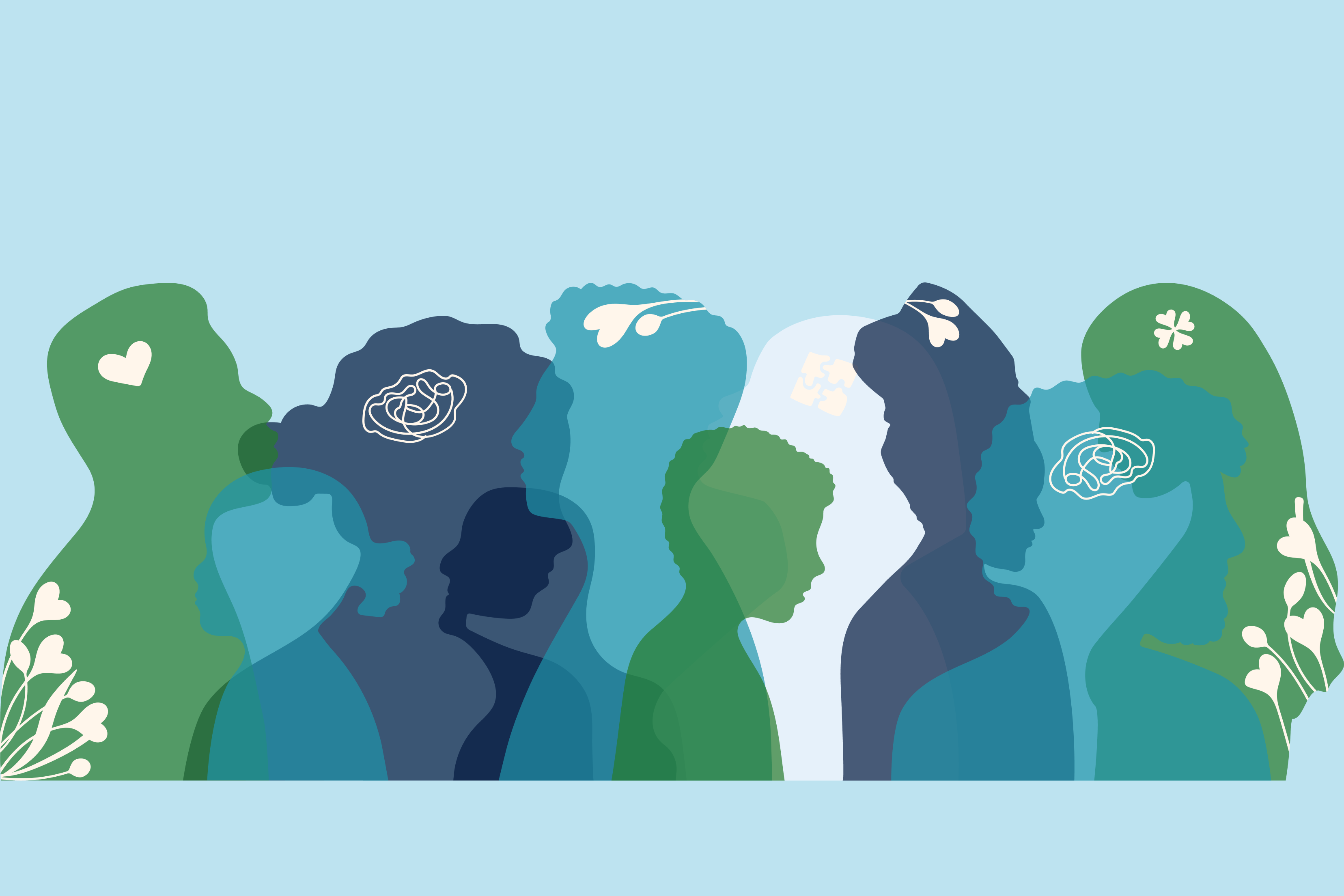Fostering Diversity and Inclusion to Enhance Mental Health

In a diverse world, embracing different cultures and identities is essential for mental health and well-being. How we interact with various cultures and experiences profoundly influences our mental health. Diversity and inclusion are not just ethical choices but fundamental to psychological wellness.
Understanding Diversity and Inclusion
Understanding diversity and inclusion in mental health is like appreciating the different colors in a kaleidoscope—each unique yet contributing to a beautiful whole. Diversity involves recognizing and valuing differences such as race, gender, sexual orientation, etc. Inclusion means actively creating environments where everyone feels welcomed and can thrive regardless of their background.
People feel respected and valued for who they are and experience a stronger sense of belonging and well-being. However, lack of inclusion and discrimination can lead to feelings of isolation and negatively impact mental health. For example, someone facing discrimination due to race or sexual orientation might experience higher levels of stress and depression.
Thus, understanding diversity and inclusion means more than just acknowledging differences; it involves actively respecting and integrating them into our communities. This approach ensures that mental health support is accessible, relevant, and sensitive to everyone's unique needs, helping to create a supportive and inclusive environment for all.
The Link Between Diversity, Inclusion, and Mental Health
The connection between diversity, inclusion, and mental health is strong and clear. Embracing diversity and practicing inclusion are crucial for psychological well-being, influencing how individuals feel about themselves and their place in the world.
When people from all backgrounds are valued and included, they experience a sense of belonging that supports mental health. This acceptance helps reduce anxiety, depression, and stress. On the other hand, exclusion and discrimination can lead to isolation and worsen mental health issues.
Inclusion has clear benefits in workplaces, schools, and healthcare settings. Diverse and inclusive workplaces often have happier employees and lower burnout rates. Schools that embrace diversity see better student outcomes and emotional health. Healthcare systems that offer culturally sensitive care build patient trust and improve health results.
Representation in media and policy also plays a role. Seeing diverse groups represented and their experiences acknowledged can lessen feelings of alienation and foster community support. This is especially important in mental health services, where understanding diverse needs leads to more effective care.
Overall, the link between diversity, inclusion, and mental health highlights the importance of creating environments where everyone feels respected and supported. This strengthens communities and contributes to healthier, more resilient societies.
Challenges to Embracing Diversity and Inclusion in Mental Health
Embracing diversity and inclusion in mental health is essential but challenging. These challenges come from deep-rooted societal issues, systemic structures, and cultural norms that shape our views and actions. Overcoming these obstacles is critical to creating a space where diversity and inclusion are accepted and celebrated.
Cultural Stereotypes and Biases
One major challenge is the persistence of cultural stereotypes and biases. These preconceived notions can lead to misunderstandings and poor treatment in mental health care. Mental health professionals might unknowingly let biases affect their care, impacting the quality of support for patients from different backgrounds.
Systemic Biases
Systemic biases also pose a significant challenge. This includes unequal access to mental health services, lack of diverse representation in research, and insufficient funding for resources serving diverse groups. Additionally, the mental health workforce often lacks diversity, leading to a one-size-fits-all approach that may not address everyone's needs effectively
Lack of Culturally Competent Care
A key barrier is the need for culturally competent care. Mental health professionals may not have the knowledge or skills to understand and respect cultural differences, which can cause a lack of trust and reluctance among diverse populations to seek help. Language barriers and the absence of culturally relevant resources can further alienate individuals.
Mental Health Stigma
The stigma around mental health is often stronger in certain cultures, which can discourage people from seeking help. This stigma can also affect families, leading to less support and understanding from close social circles.
Education and Awareness
Promoting education and awareness about diversity and inclusion in mental health is essential to address these challenges. This includes training mental health professionals on cultural competence, reducing stigma, ensuring equitable access to services, and conducting research that reflects diverse backgrounds.
Although these challenges are significant, they are not insurmountable. With continued effort and commitment, we can move towards a mental health system that truly values and supports diversity and inclusion.
Strategies for Promoting Diversity and Inclusion in Mental Health
Promoting diversity and inclusion in mental health involves efforts from individuals, professionals, organizations, and communities. Here are some strategies to create an environment where diversity is valued, and inclusion is standard:
Educational Initiatives
It is essential to train mental health professionals on the importance of diversity and inclusion. Programs should focus on cultural competence and awareness, helping professionals understand how cultural, socioeconomic, and environmental factors affect mental health for more effective and empathetic care.
Inclusive Policies and Practices
Organizations need policies that support inclusion at all levels. This includes diverse hiring practices, creating inclusive work environments, and ensuring mental health services are accessible to everyone. Policies should also tackle and eliminate discrimination and bias.
Community Engagement
Connecting with diverse communities helps us understand their unique challenges. We can do this by working with community leaders, participating in local events, and creating spaces for individuals from diverse backgrounds to share their experiences and needs.
Representation Matters
Having mental health services staffed by people from various backgrounds helps build trust and understanding. When patients see providers who reflect their backgrounds, they are more likely to feel respected and understood.
Accessible and Tailored Services
Mental health services should be available to everyone. This means offering services in multiple languages, ensuring physical accessibility, and providing therapies that respect cultural norms and preferences.
Encourage Dialogue and Open Communication
Creating spaces for open discussions about diversity and mental health helps break down barriers and reduce stigma. Encouraging such dialogue promotes understanding and empathy among people from different backgrounds.
Research and Data Collection
Research that includes diverse groups can provide insights into various populations' specific mental health needs and challenges. This information can guide policies, programs, and practices to address these needs better.
Peer Support and Mentorship
Peer support and mentorship programs can be effective in promoting inclusion. These programs offer relatable role models and a supportive community where individuals can share experiences and seek advice.
Using these strategies, we can create a more inclusive mental health environment where diversity is valued and integrated into all aspects of care and support.
Embracing diversity and inclusion in mental health is essential for creating a more empathetic and healthy society. While the journey is complex and challenging, it's a vital path. Our strength comes from our diversity, and we make the most progress when we come together, respecting and valuing all human experiences and perspectives.




